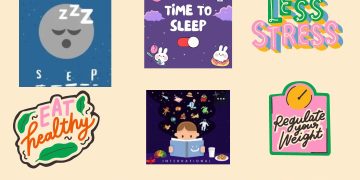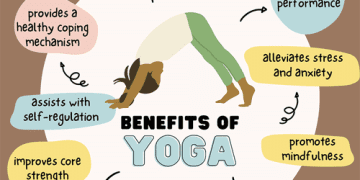Anxiety Isn’t Just in Your Head—But You Can Still Handle It

Everyone feels nervous sometimes. That’s normal. But when those feelings stick around or show up for no clear reason, it can start to feel like something more. That’s what anxiety is. And no, it’s not “just in your head.” Anxiety can affect your body, your thoughts, and the way you experience the world.
You can’t always see it on the outside, but for the person going through it, it’s very real. The good news? Anxiety can be managed—and for many people, it gets a lot better with the right kind of help.
What Anxiety Really Feels Like
Anxiety doesn’t look the same for everyone. Some people feel constantly worried or on edge. Others get shaky hands, tight muscles, or stomach aches. There are people who avoid certain places or situations because they’re afraid of how they’ll feel.
It’s not always obvious to others, either. Someone could look calm but be fighting a constant wave of panic inside. Even simple things—like going to the store, speaking in class, or answering a phone call—can feel overwhelming.
These are a few common symptoms people experience:
- Racing thoughts
- Trouble sleeping
- Feeling restless
- Increased heart rate
- Shortness of breath
- Difficulty focusing
It’s not just emotional. Your brain and body are both involved. And while it might feel hard to explain to others, anxiety is something that a lot of people deal with—even if they don’t talk about it.
Why It’s Not “All in Your Head”
One of the biggest misunderstandings about anxiety is that people assume it’s just overthinking or “worrying too much.” But anxiety goes beyond that. It affects your nervous system, your stress hormones, and even your muscles.
Anxiety triggers your body’s fight-or-flight response. That’s the same reaction you’d have if you were facing real danger. Your heart beats faster, your breathing changes, and your body stays on high alert—even if there’s nothing threatening you at the moment.
So no, it’s not something people can just turn off or ignore. It’s a pattern that builds over time. The thoughts and feelings are real, and they often come with physical symptoms that can make everyday life harder.
What Helps People Feel Better
There isn’t a single fix for anxiety. But there are things that help—and they don’t all involve big changes.
One way to treat anxiety is by working with a therapist. A good therapist can help you understand what’s going on, what’s triggering your symptoms, and how to respond to them in healthier ways. If you’re looking for support, you can talk to someone like an anxiety therapist denver who specialises in helping people navigate those intense feelings.
Some people also find relief through deep breathing, mindfulness, exercise, or simply getting enough rest. These things won’t make anxiety disappear, but they can make it easier to manage, especially when used regularly.
In some cases, medication can help too—especially when anxiety is interfering with daily life. It’s not a sign of weakness to ask about it. For many people, it’s just one part of a bigger plan that helps them feel more like themselves again.
What Therapy Actually Looks Like
A lot of people feel nervous about starting therapy, and that’s totally understandable. There’s often this idea that you need to be in a crisis to reach out, but that’s not true. Therapy can help at any stage, even if you’re just starting to notice that something feels off.
During your first few sessions, your therapist will probably ask questions about how you’ve been feeling, what’s been going on in your life, and what you’d like to work on. You don’t need to have perfect answers. It’s a space where you can talk openly without feeling judged or rushed.
Over time, therapy can teach you how to respond differently when anxiety hits. You might learn how to notice early signs, shift your thinking, or set routines that help you feel calmer day to day. Everyone’s process is different, and that’s okay.
When to Reach Out for Help
If anxiety is stopping you from doing things you used to enjoy—or making it harder to go to school, work, or just get through the day—it might be time to talk to someone.
You don’t have to wait until everything feels unmanageable. You can ask for help even if you’re not sure how to describe what you’re feeling. Just saying, “I’m struggling with something, and I don’t know what to do about it,” is a good place to start.
Therapists are trained to help people figure things out, step by step. You don’t have to have all the answers. You just need to be willing to start.
Moving Forward
Anxiety isn’t always loud. Sometimes it hides in the background, showing up as tiredness, frustration, or constant worry that’s hard to shake. Other times, it hits out of nowhere and leaves you feeling stuck.
Either way, you don’t have to deal with it on your own. There are ways to feel better, and there are people who understand how to help. Whether it’s through therapy, lifestyle changes, or small steps you take each day, anxiety can become something you manage—not something that controls you.
A Quick Recap
Anxiety is real, and it affects more than just your thoughts. It can make your body feel tense, your brain feel overwhelmed, and your daily life more difficult. But help is available, and things can improve with time and support. Talking to a professional, learning how your mind and body respond to stress, and building simple habits can make a big difference.
You don’t have to have everything figured out. You just need a place to start.










Driving the Great Ocean Road in reverse is sheer genius, the biggest wonders like the Twelve Apostles seem to pop early, before the crowds even hit the road. Between wild koalas in eucalyptus trees, homemade theplas, and a chocolate factory surprise, this reads like travel diary perfection with zero tourist traps.
I completely agree that anxiety needs to be addressed rather than ignored. While seeking professional help is crucial when it’s overwhelming there are also simple yet effective ways to manage it. Engaging in activities you are passionate about like practicing breathing exercises etc.
Understanding when to receive help can be a great turning point in dealing with anxiety. You have raised a valid point by listing the symptoms and situations.
I am sure I am coming back to re-read this post. With age I feel I am getting too anxious and overthink. Liked your suggestions to handle it well.